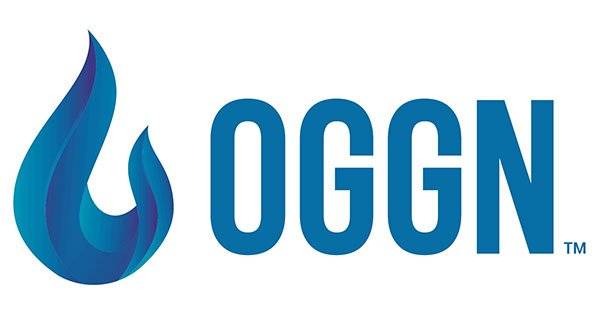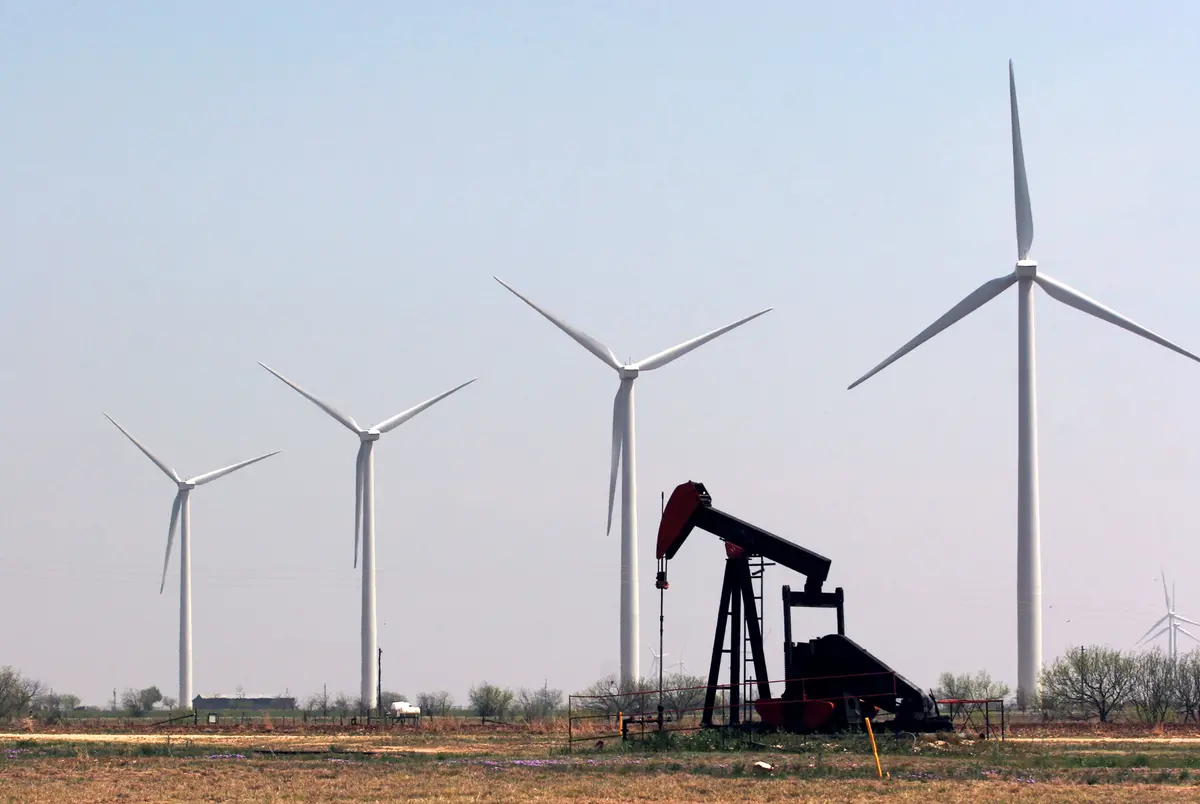Corporate Social Responsibility Consulting for Oil and Gas
Environmental Sustainability and Impact
Award-Winning Agency







EWR Digital is proud to be the strategic marketing partner of Oil and Gas Global Network (OGGN).
What is Corporate Social Responsiblity (CSR)?
Corporate social responsibility (CSR) refers to a company’s obligation to consider the interests of society by taking responsibility for the impact of its activities on customers, employees, shareholders, communities, and the environment. It is a voluntary commitment that goes beyond legal requirements and aims to contribute to sustainable development.
The concept of CSR involves taking actions that create a positive impact on society, such as ethical business practices, environmental sustainability, philanthropy, and community development. Companies that prioritize CSR recognize that their success is linked to the well-being of the communities and environments in which they operate.
Examples of CSR initiatives include reducing carbon emissions, implementing fair labor practices, supporting local charities and nonprofits, and investing in renewable energy sources. Ultimately, the goal of CSR is to create long-term value for both the company and society as a whole.
CSR Goals: Oil and Gas
The main goals of corporate social responsibility (CSR) for oil and gas companies include:
Environmental Responsibility
One of the primary goals of CSR for oil and gas companies is to minimize their environmental impact. This includes reducing carbon emissions, minimizing waste, and protecting biodiversity.
Social Responsibility
Another important goal of CSR for oil and gas companies is to ensure that their operations are socially responsible. This includes respecting the rights of local communities and indigenous peoples, protecting human rights, and promoting ethical business practices.
Economic Responsibility
CSR also involves ensuring that companies operate in a financially responsible manner. This includes creating sustainable business models that are profitable over the long-term and contributing to the economic development of the regions in which they operate.
Stakeholder Engagement
Oil and gas companies need to engage with their stakeholders, including local communities, indigenous peoples, shareholders, and government agencies. This involves listening to their concerns and feedback, as well as transparent communication about the company’s operations and impacts.
Reporting and Disclosure
Finally, CSR for oil and gas companies involves regular reporting and disclosure of their environmental and social performance. This helps to increase transparency and accountability, and can help build trust with stakeholders.
Scope 1, Scope 2, Scope 3
Scope 1, Scope 2, and Scope 3 are different categories of greenhouse gas (GHG) emissions that are used to measure and report a company’s carbon footprint.
The types of companies that will be most impacted by GHG emission scopes are those that have high levels of greenhouse gas emissions across their value chain. This includes companies that are involved in the extraction, production, and transportation of fossil fuels, such as:
Oil and Gas Companies
Oil and gas companies are major contributors to greenhouse gas emissions, and are subject to reporting and reduction targets for all three scopes of emissions. These companies have significant scope 1 emissions from the production and processing of oil and gas, and from on-site combustion of fossil fuels. They also have substantial scope 2 emissions from the purchased electricity and steam that they use in their operations.
Power Generation Companies
Power generation companies are responsible for a significant portion of global greenhouse gas emissions. They have significant scope 1 emissions from the combustion of fossil fuels to generate electricity, as well as scope 2 emissions from the purchased electricity and steam that they use in their operations.
Transportation and Logistics Companies
Transportation and logistics companies are major contributors to greenhouse gas emissions from Scope 3 emissions, which include emissions from the transportation of goods and products. These companies have substantial scope 3 emissions from their transportation networks, including emissions from trucks, ships, and airplanes.
Heavy Industry Companies
Heavy industry companies, such as cement, steel, and chemical manufacturers, are also significant contributors to greenhouse gas emissions. They have significant scope 1 emissions from the combustion of fossil fuels in their production processes, as well as scope 2 emissions from the purchased electricity and steam that they use in their operations.
Overall, companies that have high levels of greenhouse gas emissions and are subject to regulation, reporting, and reduction targets for their carbon footprint will be most impacted by GHG emission scopes. These companies will need to implement sustainable business practices and reduce their carbon footprint to comply with regulations and mitigate climate change risks.
Oil and gas industry case studies on CSR and sustainability
“Shell has a long-standing commitment to sustainability, and we recognise the important role that business can play in helping to address global energy challenges. We believe that by working together with our stakeholders, including governments, customers and civil society, we can create shared value and help build a more sustainable energy future.” –Ben van Beurden, CEO of Royal Dutch Shell
Chevron’s social responsibility initiatives
Chevron, a major oil and gas company, has launched several social responsibility initiatives in recent years to support local communities and promote sustainability. For example, the company has launched programs to support education, health, and economic development in communities where it operates. Chevron has also invested in renewable energy and technology as part of its commitment to sustainability.
ExxonMobil’s carbon capture and storage (CCS) initiatives
ExxonMobil, one of the largest oil and gas companies in the world, has invested heavily in CCS technology as a way to reduce greenhouse gas emissions and mitigate climate change. The company is currently working on several CCS projects around the world, including a pilot project in Wyoming that aims to capture and store up to 50 million metric tons of CO2.
Shell’s Eco-marathon
Shell, a multinational oil and gas company, created the Eco-marathon in 1985 as a way to encourage innovation in fuel efficiency and sustainability. The competition challenges students around the world to design and build ultra-efficient vehicles that can travel the furthest distance on the least amount of energy. Through this initiative, Shell is promoting sustainable energy use and investing in future generations of innovators.
BP’s renewable energy investments
BP, a multinational oil and gas company, has made significant investments in renewable energy in recent years as part of its commitment to sustainability. The company has set a goal of becoming a net-zero company by 2050 and has invested in solar, wind, and bioenergy projects around the world. In addition, BP has launched a carbon offset program to help customers reduce their carbon footprint.
Commonly Asked Questions about CSR
Q: What is corporate social responsibility (CSR)?
A: Corporate social responsibility (CSR) refers to a company’s efforts to operate in an ethical and sustainable way, and to make a positive impact on society and the environment. This can include initiatives such as reducing carbon emissions, promoting diversity and inclusion, and supporting local communities.
Q: Why is CSR important for companies?
A: CSR is important for companies for a number of reasons. First, it can help to improve a company’s reputation and brand image, which can lead to increased customer loyalty and sales. Second, it can help to attract and retain employees who value ethical and sustainable business practices. Third, it can help to reduce risks associated with environmental and social issues, such as regulatory fines or reputational damage.
Q: How can companies measure and report their CSR performance?
A: Companies can use a variety of tools and frameworks to measure and report their CSR performance. The most common tool is a sustainability report, which outlines a company’s environmental, social, and governance (ESG) performance. Companies can also use third-party certifications, such as LEED or B Corp, to demonstrate their commitment to sustainability.
Q: How can companies integrate CSR into their business strategy?
A: Companies can integrate CSR into their business strategy by setting goals and targets for environmental and social performance, and by incorporating these goals into their overall business strategy. This can include investing in renewable energy, reducing waste and emissions, and supporting local communities through philanthropic initiatives.
Q: How can CSR benefit the community and the environment?
A: CSR can benefit the community and the environment in a number of ways. For example, companies can invest in renewable energy and energy efficiency initiatives to reduce greenhouse gas emissions and combat climate change. They can also support local communities through philanthropic initiatives and by providing job opportunities and economic development. Additionally, they can promote diversity and inclusion within their own workforce and throughout their supply chain.
How EWR Can Help
EWR Digital, a leading Oil and Gas digital marketing company, can help with CSR PR and corporate communications by leveraging their expertise in online marketing and communications to help companies effectively communicate their CSR initiatives and positive impact to a wider audience. Here are a few ways that EWR Digital could help with CSR PR and corporate communications:
Developing a CSR communications strategy
EWR Digital can work with a company to develop a comprehensive CSR communications strategy that outlines key messages, target audiences, and channels for communication. This could include creating a CSR-focused website or microsite, developing social media campaigns to promote CSR initiatives, and creating content to highlight specific programs or initiatives.
Creating content and campaigns
EWR Digital can help create compelling content, such as videos, infographics, or blog posts, that showcase a company’s CSR initiatives and impact. They can also develop campaigns to promote specific programs or initiatives, such as community service projects, sustainability initiatives, or employee volunteer programs.
Social media management
EWR Digital can help manage a company’s social media channels to promote CSR initiatives and engage with stakeholders. This could include developing social media content calendars, monitoring and responding to comments and feedback, and running targeted advertising campaigns to reach key audiences.
PR and media outreach
EWR Digital can help with PR and media outreach, such as pitching stories to relevant media outlets and coordinating interviews or speaking opportunities for company executives. They can also help manage crisis communications and respond to negative publicity related to CSR issues.
Overall, EWR Digital can play an important role in helping companies effectively communicate their CSR initiatives and impact to a wider audience, and in building a strong reputation for corporate responsibility and sustainability.

ESG Consulting and Sustainablity Services
Welcome to EWR Digital, your partner in corporate social responsibility (CSR) consulting for the oil and gas industry. At EWR Digital, we understand the importance of balancing economic growth with social and environmental responsibility. That’s why we provide a range of CSR consulting services specifically tailored for companies in the oil and gas industry, with a focus on environmental sustainability and impact.
Oil and gas production has a significant impact on the environment and local communities. That’s why CSR is more important than ever in the industry. At EWR Digital, we work closely with our clients to develop and implement sustainable strategies that reduce environmental impact, improve social performance, and enhance long-term financial success.
Our team of experts has years of experience providing CSR consulting services to companies in the oil and gas industry. We offer a range of services, including environmental impact assessments, sustainability strategy development, stakeholder engagement and communication, and reporting and disclosure. Our goal is to help our clients achieve measurable results and continuous improvement in their CSR efforts.
At EWR Digital, we believe in collaborative partnerships with our clients. We take the time to understand their unique needs and goals, and we develop tailored solutions that deliver tangible results. By working with EWR Digital, our clients benefit from improved environmental and social performance, increased stakeholder trust and support, enhanced reputation and brand value, and reduced risk.
If you’re looking for a partner to help you achieve your CSR goals in the oil and gas industry, we are it.

Benefits of CSR Consulting Services
The benefits of using CSR consulting services include:
Expertise and Knowledge
CSR consulting firms have the expertise and knowledge to help companies navigate the complex world of corporate social responsibility. They can provide guidance on best practices, standards, and regulations, as well as help companies develop and implement CSR strategies that are tailored to their specific needs and goals.
Improved Reputation
Engaging with CSR consulting services can help improve a company’s reputation and stakeholder relationships. By demonstrating a commitment to social and environmental responsibility, companies can build trust with their customers, employees, and other stakeholders.
Increased Efficiency
CSR consulting services can help companies identify opportunities to improve efficiency and reduce costs by implementing sustainable business practices. This can include reducing waste and energy consumption, as well as developing more efficient supply chains.
Competitive Advantage
Companies that prioritize CSR can gain a competitive advantage by differentiating themselves from their competitors. By demonstrating a commitment to social and environmental responsibility, companies can attract customers who are increasingly interested in sustainability and ethical business practices.
Long-Term Value
Investing in CSR consulting services can provide long-term value for companies. By implementing sustainable business practices, companies can reduce their environmental impact, build stronger stakeholder relationships, and create a more resilient and profitable business model over the long-term.


Free Search Engine Marketing Consult
🚀 Click Here to Get Found on Google
👉 Expert Keyword Research 👉 High-Performing Campaigns 👉 Proven Results
Take action today, and transform your online presence. Our SEM services are tailored to deliver immediate impact and lasting results. Don't wait—start driving traffic and growing your business right away.
Schedule a Consultation Today!
EWR Digital’s Sustainablity Plan
EWR Digital is a small digital marketing agency committed to minimizing its environmental impact and promoting sustainability. Here are some of the ways the company is working towards this goal:
Environmental Impact:
- Energy conservation: EWR Digital has implemented energy-saving measures such as turning off lights and equipment when not in use, using energy-efficient equipment, and encouraging remote work to reduce energy consumption in the office.
- Waste reduction: The company has implemented a paperless office policy and encourages the use of digital tools for collaboration and communication. They also use environmentally-friendly office supplies, such as recycled paper and non-toxic cleaning products.
- Sustainable transportation: The company encourages employees to use public transportation or bike to work, and offers incentives for using electric vehicles.
Social Impact:
- Community engagement: EWR Digital is actively involved in local community service projects and encourages employees to volunteer with local environmental organizations.
- Inclusive hiring practices: The company is committed to diversity and inclusion, and actively seeks out candidates from underrepresented communities for job openings.
Governance:
- Transparency: EWR Digital is committed to being transparent about its environmental and social impact, and regularly reports on its progress towards sustainability goals.
- Ethical business practices: The company adheres to high ethical standards in its business practices, and actively seeks out partners and suppliers that share its values.
Overall, EWR is working towards promoting sustainability and reducing its environmental impact through its operations, while also contributing to social and governance goals.





